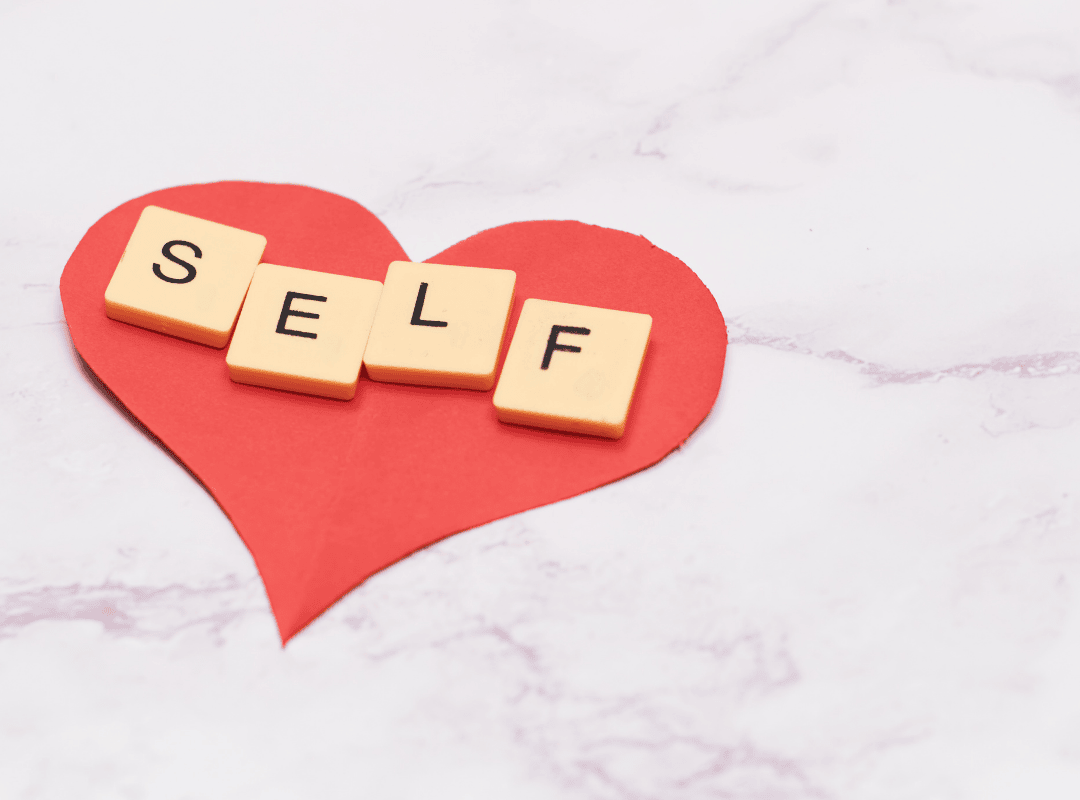Self-Compassion vs. Self-Esteem: Why Self-Compassion Matters for Mental Health
You’ve maybe been told to “believe in yourself” or “trust yourself” or another self-esteem boosting statement whenever life feels heavy or self-doubts emerge. And while self-esteem can feel good in the moment, you might notice it doesn’t always stick, especially when things don’t go your way. Then, you might notice self-criticisms emerge where you become harder on yourself, feeling like you maybe should be stronger, smarter, or more capable and the space for showing compassion to yourself begins to diminish.
That little word “should” is a sign that we’re in shame territory and there might be something there worth exploring.
If this sounds familiar, you’re in the right place to learn more! This blog post will help you understand the difference between self-esteem and self-compassion, why compassion offers a steadier foundation, and how fostering self-compassion can support you through tougher moments by building greater resilience.
The Limits of Self-Esteem
Self-esteem is often defined alongside feelings of self-worth as well as the general idea of how positively you evaluate yourself. (1)
It can feel motivating when you’re achieving your goals or receiving praise, but your sense of self-worth can be fragile as it typically depends on success, comparison, and external validation, with people often self-evaluating against the performance of others. So, when life doesn’t go as planned, for example you struggle on a project, miss a deadline, or face rejection, self-esteem can quickly plummet.
With many people falling into the trap of tying their value to performance or approval, there is a pressure created to always measure up. This pursuit can even lead to perfectionism or anxiety about failing.(2)
While self-esteem has its benefits, there’s risk in it creating an unstable sense of worth. Understanding its limitations doesn’t mean abandoning confidence altogether, it just means considering how value may not rest solely on achievement or comparison. This is where self-compassion offers a different kind of depth and a reliable way of relating to yourself when things don’t go as planned.
What Self-Compassion Really Means
Self-compassion is the practice of treating yourself with the same care and understanding you might offer a close friend or family member in need.
Unlike self-esteem, it doesn’t rely on perceptions of success or the pursuit to constantly achieve at the highest level.
Instead, it involves three key elements;
self-kindness
recognizing common humanity
mindfulness.
Self-kindness is about offering warmth to yourself when you’re struggling, rather than harsh criticism.
Common humanity reminds you that suffering, setbacks, and imperfections are part of being human, so you’re not alone in your difficulties.
Mindfulness allows you to hold painful feelings with balance, without ignoring them or letting them consume you. Together, these practices help in responding to challenges with stability and compassion, regardless of circumstances. Instead of chasing approval or fearing failure, self-compassion allows you to root your worth in simply being human.
It’s a skill that grows with practice and creates a more enduring sense of peace than self-esteem alone.
Why Self-Compassion Builds Resilience
Research shows that self-compassion supports resilience in ways that differ from promoting self-esteem.(4)
When you face setbacks, self-compassion gives you the tools to recover to help protect against spiraling into shame or self-criticism.
Rather than telling yourself something like, “I have to be perfect to feel good about myself,” self-compassion allows you to say, “This is hard, but I can support myself through it.” This mindset reduces stress, increases motivation, and supports healthy emotional regulation.(5 & 6)
Importantly, self-compassion fosters courage. By being kind to yourself, you create the safety to take risks, try new things, and accept failure as part of growth. Self-esteem may waver with external outcomes, but self-compassion stays steady because it’s based on unconditional kindness rather than outcomes and performance. Over time, this foundation helps with weathering challenges with greater confidence and stability. You can begin to approach life not with fear of failure but with trust that you’ll be gentle with yourself no matter what challenges you may face.
Obstacles with Self-Compassion
Many people struggle to access self-compassion, even when they understand its benefits. One common obstacle is the belief that being kind to yourself is selfish or indulgent, especially if you were raised to prioritize others’ needs.
Others may fear that compassion will make them too vulnerable or unmotivated, confusing it with complacency.(7) Past experiences of trauma, shame, or criticism can also create strong inner voices that resist kindness and cultural messages that value toughness and achievement over vulnerability add another barrier.(8 & 9 & 10)
Recognizing these obstacles is important as it helps to provide points of reflection for why self-compassion may be hard for you. And, just by naming it, a process of self-compassion may begin to emerge around these hard parts.
Where to start with self-compassion?
Start small.
Notice the next time you catch yourself in self-criticism
Pause
Ask; “What would I say to a friend in this situation?” and offer those same words to yourself.
You might also try keeping a brief daily journal where you write one kind thing you can say to yourself each evening.
Or, when experiencing a hard moment, place a hand on your heart and say to yourself “this is difficult and that’s okay.”
You can explore guided meditations or resources on self-compassion, many of which you can access for free online.
And if you find this practice challenging or your self-criticisms are too loud, consider talking with a therapist who can support you in fostering this capacity within yourself. Self-compassion grows over time and the first step is to simply bring more awareness to it. Something you’ve already done by reading this post :)
If this sounds like something you’d like some support with, you can book a free consultation to find out if one of our therapists is the right fit for you. No pressure, just support.



